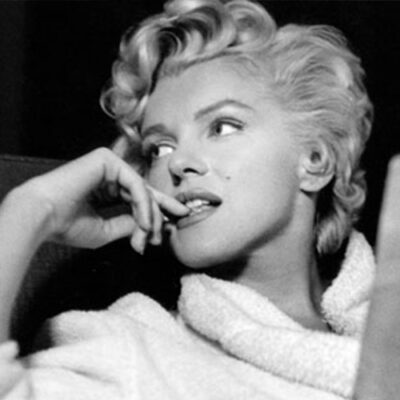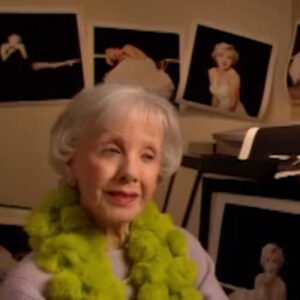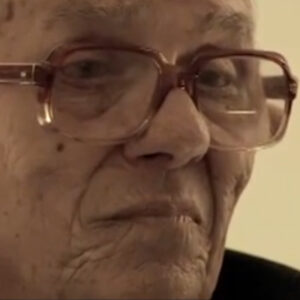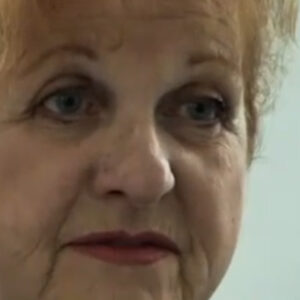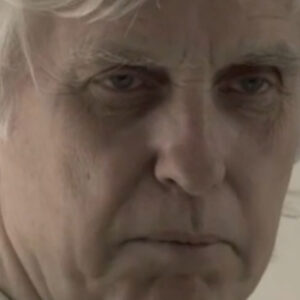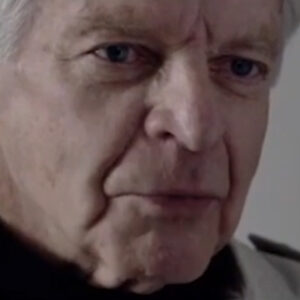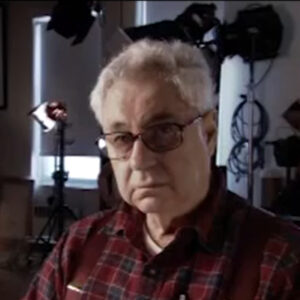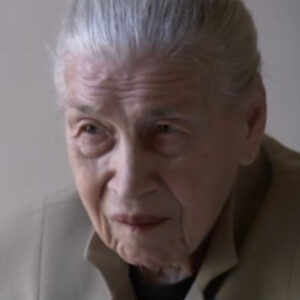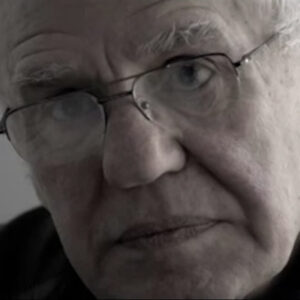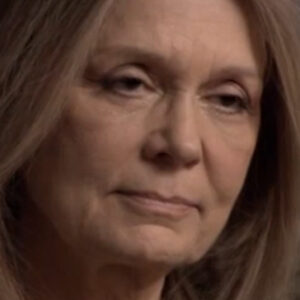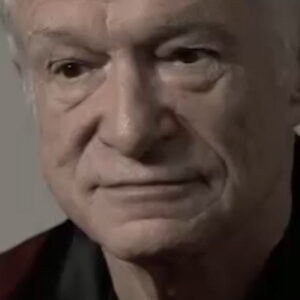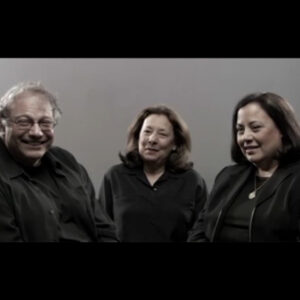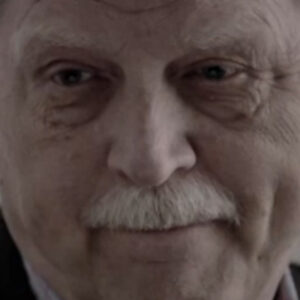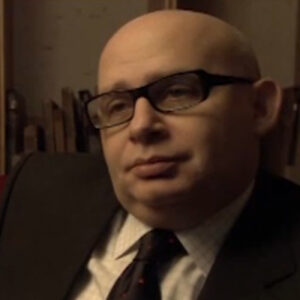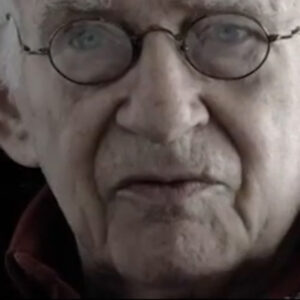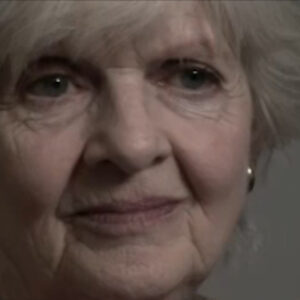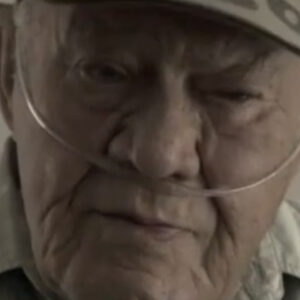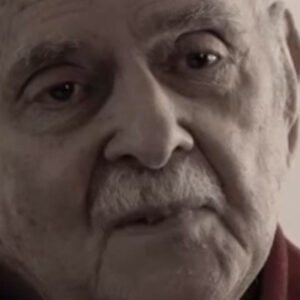Interviewer: Mark Colvin, you will just be I’d like to talk a little bit about this show in Barcelona just now and how all these years later how important these pictures of her are.
Arnold Newman: Well, she’d already become an icon. I find the pictures I took of her and particularly the ones I isolated, which show us with a sad, unhappy, mixed up girl. She’s high as a single person girl, really, that she’d become an icon. It’ll probably be forever because we sent out 30 pictures, I think, I imagine. And they sold 24 immediately. Now I’m still getting orders from those and other of my enthusiasm in Barcelona and then go another Spanish gallery about two years before did. On the on the East Coast. I was so beautifully I mean, I had no idea. I did all these pictures and sort of like I like family snapshots like I do with my own kids. I was staying with my friend Henry Wannsee, who was her producer on the film and never got to finish something. You’ve got to give him what gave was Marilyn, you would say, and she began to not show up and she began to even show off for days or comments. So late is costing him a fortune. They finally had to cancel Dave, right. They tried to redo it with all the people, didn’t work. And she was a great comedian and she was no damn pool would have to remember her mother tided an institution. I think she was afraid of that. First men took advantage of her. Well, the producers, you know what I mean? The usual way. The old Hollywood told stories about that. And then she began to use people from personal experience. I photographed her was roughly was seeing January. She committed suicide, I think, in August. I recall really from personal experience and people that I know well who tried to commit suicide and sent out a telegram. Was it signed by time to get this? I’ll be dead. And the Western Union at those times, knowing enough to hold her on the telephone, tell police, tell us they were there before this girl. I was only woozy from seeking her head in the oven. And they’d been five, ten minutes later, she’d been gone. It was the same thing with Marilyn. She took these pills. She realized that she wanted to help. That was really a cry for help. As everybody knows, every doctor will tell you that she picked up the telephone. People said, oh, she took him by accident. Everybody who really knew her. Demarai Moyal. She did it. Deliver the cry for help. She was so frightened of what was happening to her.
Interviewer: When you met her, you can tell.
Arnold Newman: Me one second. Right? Oh, my southern alive. Not for her. I took one look, her eyes. She’s gorgeous. But this was somebody I’d only have mixed up with size of pretty happily married to having halos. The whole thing was it was obvious. I went out to California to work with Carl Sandburg, a book which never got finished. And Norman, Norman Mailer was supposed to do it, but then he had to postpone it for a year because of his own publisher. So the only one I knew know Arthur Miller thought about it and they had the wrong idea. They thought they had to write about individual people in the picture. Norman Mailer, author of a wonderful essay One Time, and they meet in The New York Times Book Review on the. What artists of all time, writers of all time have the obligation to the public to do things right? Who would have been perfect for my book? He thought I had to write about every single person. I even had to convince Carl. Carl eventually came to my house right away and I got sick and almost died over Lincoln’s birthday. Honest to God, my daughter was on vacation. And so his secretary called her doctor come running over and she’s seen the look on his face when he saw who is the patient would be. You said, Mr. Samberg, are you allergic to penicillin? I thought about it for a moment. He said, I don’t know. I’ve seen a doctor since 1924. But I’m ahead of myself. I went out there to work with Carl, who is doing the words of Christ for a movie out there. He was trying to pile of money for his family and my hotel was canceled when we tried to check in. They said, oh, Mr. once, I want you to stay with him. And he couldn’t catch me. I just realized that I was coming out to see Carl. So I was staying with her in his big house in Beverly Hills or sorry. And the first thing he said is usually one of the reasons I want you to photograph Marilyn. I did four movies form Round the Corner is a film. I did. He was the executive producer. Here is the major producer on this group of pictures here in the middle. The just Shiloh is the south of France. And he said, I want to do Marilyn preproduction and you’re going to meet her Saturday night. He said Saturday night, I got to go home on Saturday. So he called. He says, you can do the house. He had the analysts who took a room who is home, and Vider, a niece. He fell against all the rules of living rules. He had to he was suppose to invite her to his home life that he did. He felt the need of him. He called my wife and he called my wife. He said, Arnold can’t come home Saturday night. Oh, I’ll be home once. Which is a great story when we think about. So I was when I met Marilyn the first time, she was always my date and she acted like a little. Well, how strong can I just want to I just wanted to tell you that is going to get you more difficult to get through this. And she was seated next to me. And then I began to see this. This is great. Marilyn Monroe, that sort of thing. The more I get to talk with her the evening and I realize that. And when you started talking and so I think we had a couple of dinners on Henry’s house, which she was always my dinner date. And this group of pictures, one night I decided I’m going to take a bunch of pictures. I’ll take them all and show it to my wife or my. I’m just kidding, you know, just fun. They had.
Interviewer: A very different than your normal way of working these pictures.
Arnold Newman: What is your normal way?
Interviewer: These are not the portraits?
Arnold Newman: I’ve done a lot of camera work. I did a whole book on Stravinsky. Candy. Candy was my probably my best-known photograph has a big book, big photograph on Stravinsky. Thank God. I thought that it is probably one of the Best-Known pictures around the photograph. Did you believe at Harper’s Bazaar or who commissioned it? Turned it down. A great brother, Mitch, great art director, was apologetic. He said, well, it’s too good to use. Well, I think the editor turned it down to understand that that’s not about Marilyn. So that night were all these pictures were taken. Henry was married to a cow, identical twins. Some very funny stories about getting mixed up. One time this girl thought I was trying to pick her up. And actually, whenever we met, they wrote all these words. She looked at me, you know, it was a big opening. And I said, Come on, let’s dance. My wife was to give me permission. I was. So she was there with her twin and they had been divorced range, and they were seeing and thinking, get together again. Sister accompany her. There were two other people there. She was Henry’s. No, I’m Henry’s nephew. Wasn’t there at that time. So it was sort of a little gathering. Look, I’ll be fine. And besides, I was sort of the more a very friendly to Henry. We were good friends. I’m sending some pictures. That’s all I had in mind. She was complaining, amongst other things, to Carl that she couldn’t sleep at night, which is the usual thing where total person and she would take sleeping pills. And so Carl’s are showing her exercises, which really she should take before she goes to sleep and help you sleep and then skip going over. He was dancing with her and everything else. And one time I said, holy mackerel. I’m not many of these pictures. That’s my problem. I can be with anybody in the world. On occasion, I may suddenly realize I’m with the president on the war them for an hour. Had no pictures. I was. Except the official portrait photographer. So give me a call. I was just sort of fond of these pictures. So we were shooting and shooting at night. I don’t know how the first people found out about this group of camera pictures, which I was used to. And I took it in the natural light. I, I mentioned before I flash. It’s not real. I’m one guy who did flash in those days. It was so real. Was part of the way he took pictures was Weegee. They look like police pictures. I knew we’d do them all. When I was a kid, when I came to New York, I was 20. I first came here and I went back. Now it’s 23. And then I came back, really spent a year here. And then the army call didn’t take me and hypertension. And then third, take care of myself. I live very, very well. I can count the days on my fingers. 88, but. Maybe if you hit your age, you gain a little bit of wisdom in the beginning, you know nothing. He won’t take me. When you get into your 40s and 50s, a lot of knowledge was the most common cause in life. I think a French expression would give me the drop. I think I have a slight cold.
Interviewer: Studying. Yeah. Tell me about Carl Sandburg with her, the sequel.
Arnold Newman: Well, she’s already met Carl. I think if you had been there for a while working on this film, he was doing the words of Christ. So she felt that you could pour more guilt when she was doing just that. When I took the picture that we just we just worked with 16, 20. And she was telling Moe’s troubles. And I quote someone who said, you know, she never finished the film. She was so troubled. She no one could really you as I said, she died just a few months later, about six months later, committed suicide. And then you dance with her. I think you have moved. That is why not? I’d like to look at pretty girls kiddingly say I can’t remember why. So I’m trouble is, I can remember why. But I so have my wife. Fifty fifty seven years. So a beautiful woman. Unfortunately not too well. And. It was a strange evening, in a way. All these other people never met her. These are this couple, at least, I think. Friends of Henry’s invited dinner. They’re just a handful. Was a dinner. Seven of us. She’s so different personally than everybody expected to be when she was on, she knew how to project sex. She was a very good my opinion, a wonderful comedienne. She really had toned. She had really been straightened out somehow. She have been able to go on like a lot of these some beautiful women on the movies or on television, television at least gives a lot of her middle age and older women a great chance.
Interviewer: To see television career. She might have had an interesting television.
Arnold Newman: She would have had a great with movies and after. I doubt it because by this time, anything she’d do, people go to see. And look what’s happened here we are almost half a century. And we’re doing movies on the Aaron Brown movies back only here. They buy or pictures in Spain, Germany and now England all over the world. My picture of World Youth. I showed you this morning that I was working on a cell like mad.
Interviewer: I want to talk about the fact that that picture is really part of a bigger picture. I want to talk about your process in taking that picture and cropping it back.
Arnold Newman: Well, to me is the image when we were in senior producer or 20th century specifically asked me to photograph her new portrait was on every single one of the movies that I made for him. I did those movies as well. Portraits of them in character. And some that I know like Danny Kaye. I did them for other people as as they are as human beings. So on my SO machine noise. You want me to photograph her? You want to get some preproduction pictures before the film was even being made where I would be called in or I always did. Maybe a group portrait of the whole cast. You get all those people together. You can see it up there right around the corner. That’s the biggest group of superstars of late 40s and 50s you ever saw to know them personally? I spent two weeks there. They were three and a half voice in the south of France with that is amazing to know what people are really like in person. Sometimes you get an idea and I suppose people have a different idea of what they’re like. But I would. I don’t know whether people knew or had any inkling before the public and talking about what she was like in Hollywood. Everybody knew this was a very tough week. And I think you wanted to get this thing done quickly because he was worried about her and you had to the movie off of Consumer Fortune.
Interviewer: Tell me about, though, when you label.
Arnold Newman: When I did the picture, the two homes, they were sitting drinking champagne. Marilyn insisted on having ice in their champagne when she came to my house. She put some ice in the champagne lining when she was coming we to get to champagne. I’m not much of a drinker. I’m not a lady. As I said, there are no haloes. I like a drink once in a while like everybody else. We all that much. They were drinking champagne, which probably help loosen the rope with which she had a couple of drinks before and she was pouring and water. And here they were, the great poet, biographer of London, talking to, I mean, two icons talking together. I said this. I got a photograph. I never thought of that in my commercial sense. This combination since the euro area was Carl, this Marilyn and I started shooting. I don’t know, a bunch of losers. And then she cried on the shoulder. I got the back over her head, patting her weight coming down.
Interviewer: Again. Right. All right. Say again. Can’t just tell again about when she’s crying.
Arnold Newman: What’s wrong?
Interviewer: Was it the noise at the buzzer outside?
Arnold Newman: Oh, well, we’re right. I know sometimes some people have kids here. I can’t complain. I have kids here. My first son was born upstairs before we moved. 33. Sometimes I have to yell quiet. I can’t talk on the telephone. Been very quiet. That’s one thing we’ve been lucky. Do they both. Telephone ringing. Shush.
Interviewer: So tell me again about the one where she’s crying on his shoulder.
Arnold Newman: Well, one point, I think she began to weep and he patted her on the bag and she cried. I got the back of her head, the. To see a woman so famous like the. I just feel sorry for you, even as we demand fame in the time you see as you do mine. Take me all morning. As you know, I have ah, I rented a car and I’ll take a home, but I’ll just drop her off at the door and that’s it. She was beautiful and desirable with you. Anybody that is, you know, whether they had trouble.
Interviewer: How does he feel about her? How did Sandberg feel about. He’s lovely.
Arnold Newman: He felt sorry for. He felt the same way I did and. Carl had two daughters and they were not married. One of Brazil and the other one got married. That was why he was out there piling up money for his daughters. I think they were raised in their 50s. So and his wife, Ty, there’s nobody to take care of them and would wind up in these public institutions. I mean, there is a famous guy I’ve met many, many famous people. What’s important, the first thing your family. All the medals, all the honorary doctorate, solid gold medals. That sort of thing. Muslim, you can think, except your family. You know, a lot of young people looking for. I am a little we find that what it’s all about.
Interviewer: Can we talk about the fact of how you cropped out?
Arnold Newman: Well.
Interviewer: I just I think that when you look at it separate from this picture, you don’t. It’s a totally different picture. I never looked at it so many times before I met you and did not realize that this was part of this picture.
Arnold Newman: Old dudes. I was lucky. I was more than on my knees to be born with a friend. You have to make use of it. I’ll go around saying I’m an artist, a good artist. You go around saying, I’ve got work to do. I got ideas. And you’re trying to get them now. So you develop ideas, you develop and you look. I like to say some of the best pictures I’ve ever taken. I didn’t have my camera with me. So this is man who tries. It will be. But when I took a look at that. Oh, she kept promising to impose unless the so. She kept promising to pose for me. She never did. When she came east, she said, once more money. I have some more champagne. Some more drink. So. Follow me. Zonal juices. I’ll give you your first class fare. You can back to Hollywood. You promise some pose because she kept Terry. I don’t feel well today. I don’t feel like it today. I was out there long enough in that time in between working with Karl and I would be willing to stay. And so she wanted me on my hands. She said, Arnold, I’ll give you some a money, I’ll do anything you’ve promised. And Marilyn. I come out. You’ll say no. His only problem is I should move. I’m willing to do it while you’re here in New York strongly. You’re going to be here for a while. Well, I can’t do Dizzie or. That was even on the phone I was looking through these pictures, took a look at this picture. I knew she was a troubled girl. I knew she was telling a murder. Took one look at the. Now, look at that. That’s a sad one. And everybody who buys a picture buys it because this is real. There’s only one other photographer I was ever photographed. They looked cute. She looked. You said that. A lot of its members, including friends of mine, have great pictures of. But this was her projecting Marilyn Monroe. She is. And that’s what you supposedly specialize. So you know what it is. I will take a picture of you sitting there. I’ve got all these things in the camera and everything else. I’ll tell him, turn here and the cameraman turns here. You take a picture of this. And she would tell her, I mean, over this way. Lean this way. What a wonderful picture. What’s it.
Interviewer: You were talking about? The fact that she would never say that she never did it for the portrait?
Arnold Newman: Well, what I would do is I love the way you’re holding your hand. Now put it down. I will get you in a position and then I’ll pull around. I know I’m ready. I get you in place where I know the competition is. Oh, man. I’m sorry. I know somebody. If you move, I’ll kill you. Make you shaunessy as soon as possible. Hold it right there. All right. So I take pictures. People punish themselves by your tampons. You’ll see the whole picture is like clothes. I won’t find anything out. It’s the only way to photograph people being natural. I told you I had flash. This is natural light. People can tell most of the time unless I do it deliberately. When you take a picture. Whether when I take a picture, whether or not it’s natural light, artificial light, it is very easy to imitate artificial light. My right. Very easy. I when I photographed, uh, what’s his name. Uh, their friend over here. No, no,.
Interviewer: No, Woody.
Arnold Newman: What is the Woody. He writes embed middle. We got it all set up as a brilliant day and all that sort of thing. And then in the day we said turned out then he was living right on Fifth Avenue. Puerto Rican. Every day we couldn’t get to we knew it was wrong that we were pouring outside. I know it was boring, but it was overturned. So I was on a flight to get this exact line. I just demonstrated what I remember who who’s was so perfect. Lights in the window. And I’ll wait for the way in which he did do. Very simple. I see my pictures now all over the place. Television. I mean, as you say.
Interviewer: You didn’t get a formal portrait of Marilyn, but there’s this. You did.
Arnold Newman: Well, I think that’s even computers. Anything you could have done. I know that I would have had to have taken a picture of Marilyn if possible onset or something like that. Like, I did love Jim and I didn’t. I did because of his father. What was his name?
Interviewer: Jim. Jim Birrell’s.
Arnold Newman: Jim Burrows. Abe, why didn’t the studio sort of just fun sort of thing. He came up to visit us, come up with something. So I did something. I like studio, which that was what I’ve had to do that a lot of times when people are out of town. The first picture I did is Romanski, which I’m well known. What am I gonna do with him? I’ve heard of a piano. And we looked around the town. The perfect piano, which resembled a, uh, piece, had a strong drummer, harsh and very beautiful. It’s like his homework was symbolic picture. I don’t know. Have to have kind of a picture. I mean, it’s in a way, this one.
Interviewer: And this is symbolic in exactly the same way.
Arnold Newman: In the same way that we talked about this. This is the picture. And cropping is to the essence, the last bullet, because there’s a whole page in art, knows about me and Mondrian where I used to go visit with Monroe and I photographed them. Poor guy was world famous. Couldn’t earn a living. Couldn’t sell his paintings for two hundred fifty dollars. Forty two. Some people were beginning to earn a little money. And he had friends who wrote him over and kept him alive. You know the story that was heart news. Just simply that he had found colored tapes. So instead of having to paint, scrape it all off, paintings, write it off, do it. Time and time again, he was able to move tapes and cut them in or a large. And that’s what I get water tapes for. One day I was visiting and I was sitting in a window shoes. You know, I do this one day I was sitting there and I was sitting between the two windows. This was a place, two room apartment, one bedroom on front row made on First Avenue. In the old days when that was four workers and maybe whole families lived in this tiny little place and that’s all they could afford. And one day it was moving tapes, you know, heavy quarter against them. Somebody turned to me and he said, What would you do? I said, Oh, you’re right. Maybe I cut it down about the 16th of a natural whatever I said and moved over 30 seconds, some outlandish things like that. And I said, oh, my God, what did I say? I’m the greatest designer that ever lived. That’s where I learned a great deal watching him. He looked to me. So just not as others. That’s right, then. Not to me. Well, one day. Another time. And I was there so little time to be hopeful. A whole lot of the same race and reraise. And I couldn’t help but notice that all a beautiful drawing is. Oh, you gave me some privacy those days. I couldn’t sell my prince for more than ten or fifteen dollars. You couldn’t sell his toys for ten dollars. This is not good enough. He’ll come back Thursday, come back Thursday, because that was the day and they had a more finished cry and then turned it over. He. Would you do me a favor? Make a copy of the second one for me? It gives me an idea. So a few days later, I made the copy the same size nine inches. With this he handed me both Roy. Money back. I never expected it to me. I have drawn by maundering, I’m one I never has. Well, I never asked you how I photograph you. May we change? I never did that. It would spoil my entree. It was my idea in the first place. These were the perfect people to experiment with. And that’s what brought me to the public. That it showed the Philadelphia Museum of Art of these. When they found that I did it, about 50 some odd of them. Life gave me two and a half pages. And The New York Times gives me two pages. Suddenly I was discovered and I it. So I came back north. The war was over. I came back north and I was younger.

